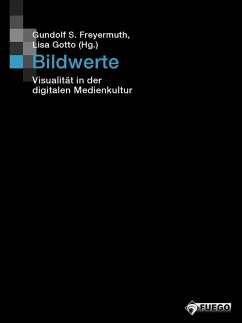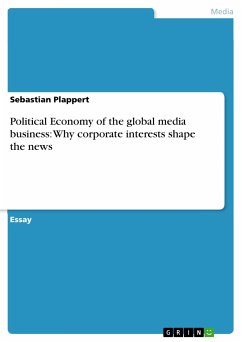
The Problem with the Influence of the Moving Image in Society Today, the Alter-Modern and the Disappearance of a Focus on the Internal (eBook, ePUB)
Sofort per Download lieferbar
Statt: 17,95 €**
15,99 €
inkl. MwSt. und vom Verlag festgesetzt.
**Preis der gedruckten Ausgabe (Broschiertes Buch)
Weitere Ausgaben:

PAYBACK Punkte
0 °P sammeln!
Scientific Essay from the year 2016 in the subject Communications - Media History, , course: N/A, language: English, abstract: Since the early twentieth century, civilization's obsession with the moving image has helped it to go backwards instead of forwards. Because of the nature of the way moving images are proliferated especially during our present age of digital expansion, the past and the history of the past produce a cultural amnesia which creates a misperception that we are greatly ahead of our past. Much of this is because our continuous fascination with the moving image has undermined...
Scientific Essay from the year 2016 in the subject Communications - Media History, , course: N/A, language: English, abstract: Since the early twentieth century, civilization's obsession with the moving image has helped it to go backwards instead of forwards. Because of the nature of the way moving images are proliferated especially during our present age of digital expansion, the past and the history of the past produce a cultural amnesia which creates a misperception that we are greatly ahead of our past. Much of this is because our continuous fascination with the moving image has undermined and effaced a Modernist reasoning which had been more concerned with searching for an internal depth in objects and things which were reflected in the human being. As a result of our visual thirst for the moving image which takes us away from this, we now live in a situation void of causal reasoning which makes it very easy for very little reason, or difficult, for well-justified reasoning to exist since our thirst and addiction to the moving image has seen a spiritual shift away from the search of internal value and meaning that has been tied to our culture and cultural perceptions. By tracing civilization's obsession with the Classical which it had once used as a 'steadying metaphor' the paper attempts to explain some of the influences that have made us lose our focus on the importance of the internal and offers to explain why we are now more than ever before bereft of a focus for searching for the internal depth that exists within people, objects and things.
Dieser Download kann aus rechtlichen Gründen nur mit Rechnungsadresse in A, B, BG, CY, CZ, D, DK, EW, E, FIN, F, GR, HR, H, IRL, I, LT, L, LR, M, NL, PL, P, R, S, SLO, SK ausgeliefert werden.













